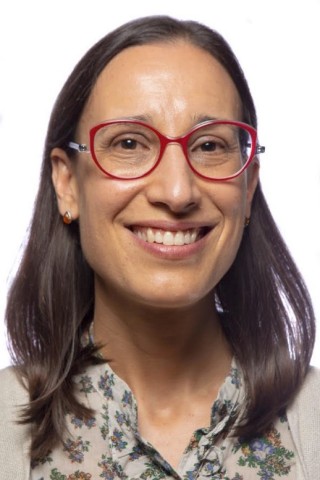MCAA Social Impact Award winner: “I believe in transforming stagnant structures and won’t settle for less”
Newsletter
Ana Maria Sanchez
Ana María Sánchez is a public policy researcher working in the civil society sector, with a strong commitment to causes related to gender and disabilities. She initially became interested in political science because of the poverty and inequality she witnessed in her home country Mexico. She was awarded the Social Impact Award at the MCAA Annual Conference in Milan.

The Social Impact Award is given to an MCAA member whose work has had a great influence on society, whether by resolving social challenges or having an impact on communities and people. Ana María Sánchez, Director of Philanthropy at Centro Mexicano para la Filantropía (Cemefi), received the 2023 edition of the award. She shares the journey that led her to the recognition.
How does it feel to win the award?
“I was moved to be nominated for the award by the MCAA Mexico Chapter. I feel deeply honored to receive this recognition, as I was not expecting it. It is a huge encouragement to keep working for the causes I find important, and I’m thrilled to share it with those who have supported me.”
What journey led you to this award?
“I am deeply committed to social causes, especially those related to gender and disabilities. During my time at the university, I initiated a literacy programme in suburban areas. One of the most memorable moments was when a woman expressed her joy at finally being able to read the bus sign she passed by every day on her way home from work. This experience, along with the guidance of my mentors and the support of my family, further fueled my passion for making a difference in society.
I began my career in the public sector, working on a programme that supported civil organisations in Mexico. I pursued a Master's degree in managing NGOs, and my PhD at the University of Massachusetts Boston focused on the work of civil society organisations in ending gender violence against women with disabilities. I aimed to recognise their contribution in areas where the government had not been adequately involved. In 2017, I received support from Marie SkłodowskaCurie Actions to conduct a postdoctoral analysis in Laos. My research focused on the social innovations of small organisations working with people with disabilities.
For the past two years, I have worked in a philanthropy support institution called Cemefi in Mexico. Cemefi supports thousands of socially responsible grassroots organisations, entities, donors, and companies. As of now, I am the institution’s Director of Philanthropy, promoting antiracism, gender equality, and human rights. Moreover, in 2022, the Mexico Chapter of the MCAA was founded, of which I’m currently Vice-Chair.
I cannot speak about my journey without acknowledging the mentors who have accompanied me. Some women I’ve worked with have committed themselves to fighting social injustice, like researcher Donna Haig Friedman and founder of Women Enabled International, Stephanie Ortoleva. Stephanie was one of the first advocates for girls and women with disabilities, and she helped me to identify and understand gender and disability discrimination. Through her guidance, I learned to recognise the intersectionality of different forms of discrimination and how they impact the lives of other women. Understanding these experiences is crucial to transforming public policies and creating a fairer society.”
How will this award propel you in your future endeavours?
“I am encouraged to continue advocating for social justice and human rights and engage with like-minded communities. I hope to raise awareness among other groups and be a catalyst for change. I strongly believe in transforming stagnant structures and refuse to settle for anything less. I always strive for nonconformity to improve or innovate.”
What are your future goals?
“I aim to continuously transform and have a positive impact on society. I am constantly learning and seeking dialogue with individuals with different perspectives. I challenge myself and others to create meaningful collaborations that are solution-driven. The MCAA is a space that fosters such collaborations, also supporting change agents within the social sector. Rather than focusing on creating science emeritus, it builds scientific communities that apply knowledge to solve complex social problems. In the future, I plan to remain in the philanthropy sector and continue learning about different dynamics and building bridges between communities to create an intersectoral impact that is more assertive and profound.”
What advice do you have for the MCAA?
“I recommend that the MCAA continues to bring together individuals interested in using science to serve others. It would be beneficial to expand this community to include other sciencerelated groups as well as those from the private and nonprofit sectors. The MCAA promotes collaboration across society, and it is important that it mobilises individuals who are interested in scaling and promoting inclusive environments for social good.”
Kira Keini
MCAA Communication Officer
kira.keini@mariecuriealumni.eu
@kirakeini